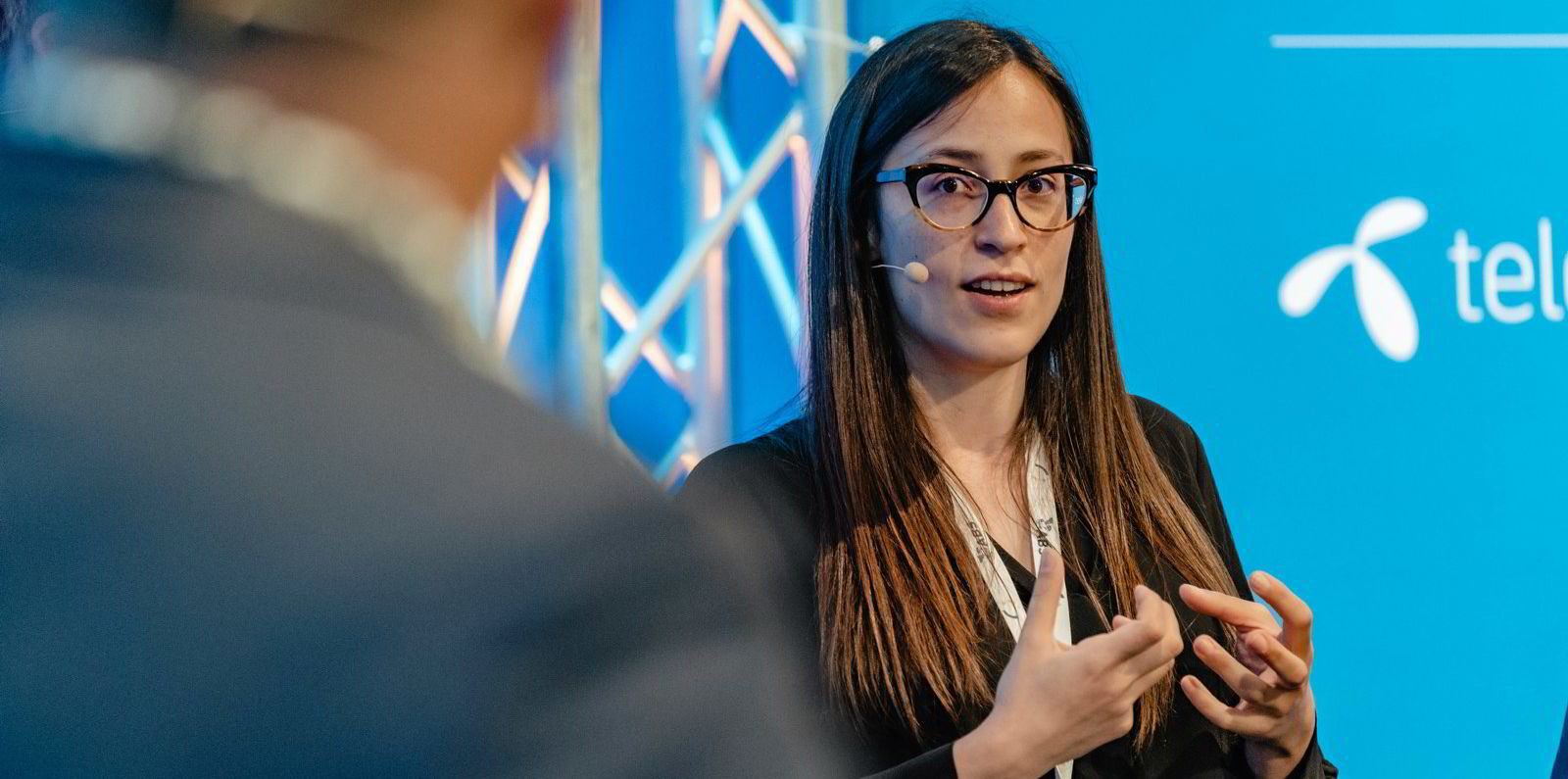Is shipping as committed to creating diverse and equitable workplaces as it is to its green initiatives?
Cristina Munoz, co-founder and chief operating officer at Bound4Blue, does not think so and has witnessed men get up and leave conference rooms during sessions that discuss environmental, social and corporate governance (ESG) issues.
“I believe that equity and diversity within your team really has an impact on your P&L [profit and loss] account, so I’m very curious to know why other companies in shipping are not really embracing this diversity and this equity just like sustainability within their own ventures,” she said.
“It’s not just about women; it’s about having people from different nationalities within the team, from different ages, from different colours, different religions,” she said.
“Because if not, this transition that shipping has to go through really will not be equitable and will not be good. It will be for old men because those are the ones who are choosing the direction that shipping is going — where is it going? Where are the young people?”
She added that engaging young people in sustainability initiatives is critical. Many of the people currently active in the space will have retired by 2050, when shipping aims to achieve net-zero greenhouse gas emissions.
“Young people, they will have to answer to other younger generations later [for] what they’ve done in their jobs because they will still be there when the impact is being seen,” she said.
In her spare time, Munoz gives talks to female students and mentors young women who want to launch their own entrepreneurial projects.
But although her accomplishments speak for themselves, Munoz has still come up against sexism in shipping.
“There are some things that have happened to me, but I suppose that that has happened also to other women,” she said, without going into detail.
She said everybody in shipping should be asking themselves how they can play a part in making their company more diverse.
“Because for diversity it’s not because it’s cool, because it’s fancy, because it’s there — it’s because it has sense, a business sense,” she said.
And when men leave the room during ESG panel discussions, she suggests we ask them: “Where are you going?”




